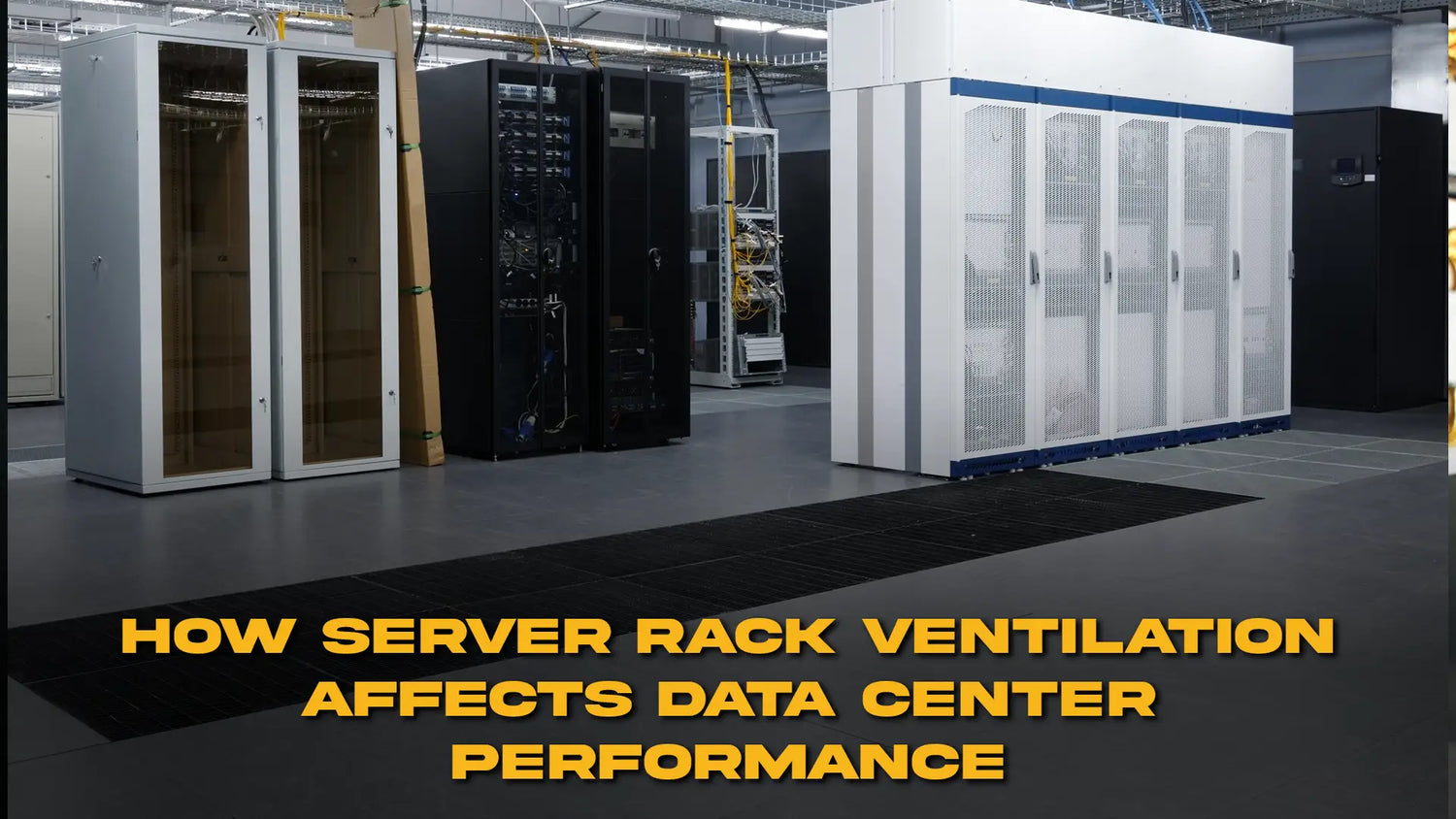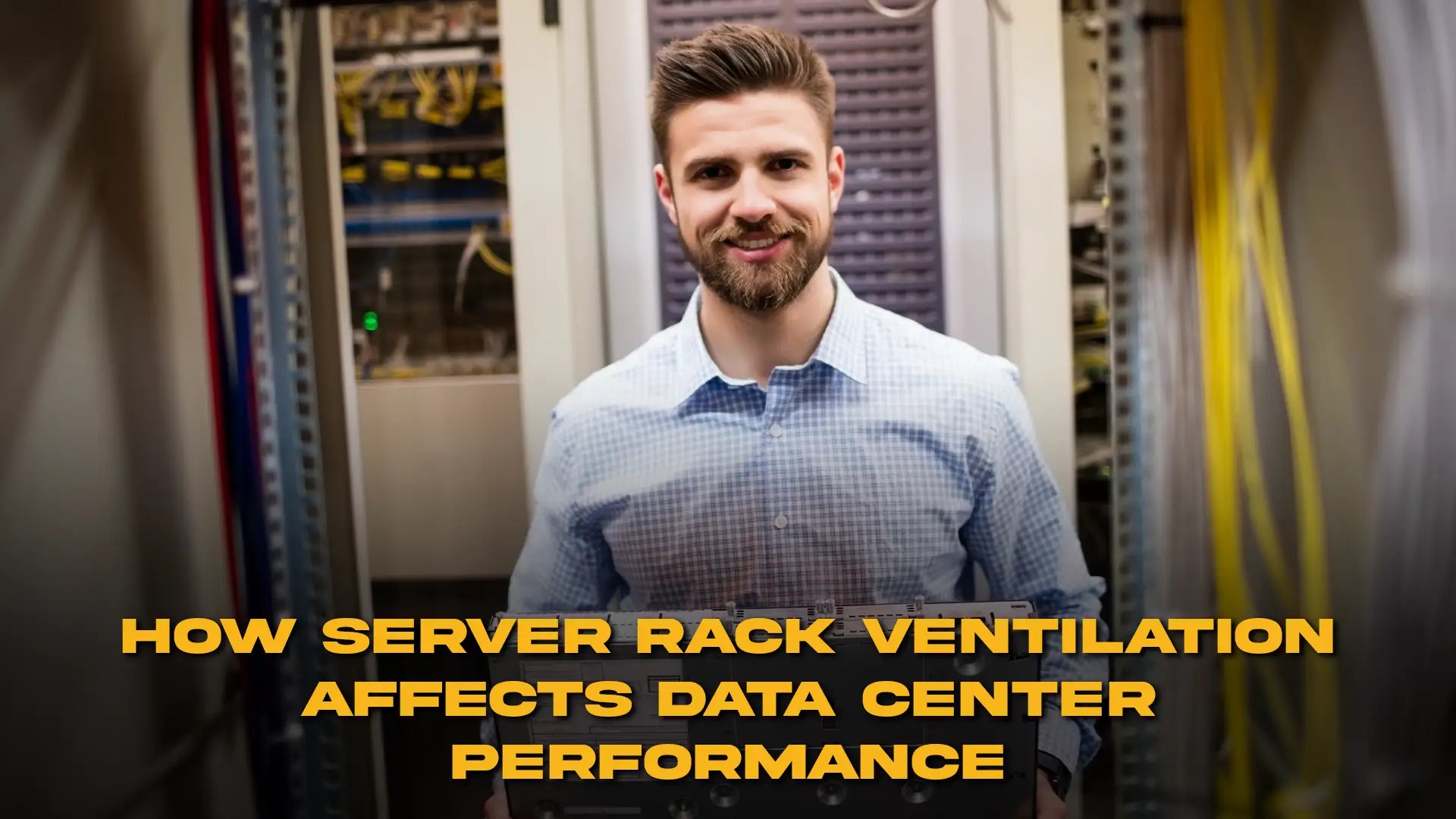Data centers are super important for businesses now. They keep all our info safe and help it move around. As we need more data, we also need ways to keep the servers from getting too hot. That's where good server rack ventilation comes in!
Keeping servers cool has always been important for data centers. It makes sure everything runs smoothly. But now, servers are stronger and we pack more into each rack. So, cooling the racks well is super important. It stops overheating, keeps things steady, and makes the whole data center work better.
Why Server Rack Ventilation Matters
Server rack ventilation is a big deal when you want to keep the temperature right in a data center. Good ventilation makes sure cool air gets to all the servers and hot air gets out. If you don't have enough ventilation, servers can overheat. This can break them, cause problems, and even lose data.
The aim is to cool things down just enough to match the heat from the servers. If things get too hot, parts can break, the equipment won't last as long, and the data center won't work as well. Good server rack ventilation solves this by making sure the air flows well and the temperature stays where it should.

How Server Cooling Improves a Data Center
One of the best things about server rack ventilation is that it keeps the temperature steady. Server cooling systems are made for those super strong servers that make a lot of heat. These systems use things like air conditioners, liquid cooling, and fans to keep everything cool and running well.
But, you also need server rack ventilation to help those cooling systems. Network cabinet fans are often used in the racks to move air around. They push the air where it's needed most, so heat doesn't build up. The temperature inside servers really affects how well they work, so moving the air around is key.
Make the Air Flow Well
If you want your data center to work its best, make sure the air flows well in the server racks. If the air doesn't flow right, hot spots can pop up. This means some parts might get too hot while others stay cool. This makes the cooling systems work harder, wastes energy, and can break your stuff faster.
By using better server rack ventilation, data centers can make the air flow better and cool things down more. This means making sure cool air goes in the front of the rack and hot air comes out the back. Put fans in the right spots and use server rack cabinets that help with cooling. This way, you get a steady flow of air that keeps things from overheating and keeps your equipment running great.
Server Rack Cabinets That Help with Cooling
When setting up server cooling, people sometimes forget about server rack cabinets that have cooling built in. These racks have fans and other things to move air around and get rid of heat. They're made to cool the specific servers inside them, so each one gets enough air.

These cabinets give your servers extra protection. They spread the cool air evenly over all the servers. If you use the right server rack ventilation and these special cabinets, you can stop hot spots and keep your servers running well.
What Happens If Ventilation Is Bad
If you don't take care of server rack ventilation, bad things can happen. Overheating is a big reason why servers mess up and data centers don't work as well. Servers that get too hot can break, run slowly, or even crash completely. This hurts your IT stuff and can also cost you money for repairs, cause problems, and make you lose data.
You can't say enough about how important server rack cooling is. Without it, data centers can get ruined. This can change everything from whether your services are available to how happy your customers are. By making sure your server racks have good ventilation, you protect your equipment and keep things running smoothly.
Cooling Data Centers: The Whole Picture
Getting the best cooling for data centers means more than just putting in cooling systems. You need to think about server rack ventilation, how the air moves, and setting up the cooling units right. Data centers need to figure out how much cooling they need based on how many servers they have, how much power they use, and things like the room temperature and humidity.
Putting in good server rack ventilation is just part of it. For the best results, think about using cooling systems that can be expanded and server rack cabinets that help with cooling. This creates a complete plan that takes care of the needs of today's servers. If you balance server rack cooling and ventilation, you can keep your equipment running well.
How to Keep Servers Safe with Good Ventilation
When you run a data center, keeping your servers safe is one of the most important things. Overheating and bad server rack ventilation can really hurt your equipment. This can lead to expensive repairs and lost work. To keep things safe, data centers need to get good server rack cooling systems. These systems keep the temperature steady and make sure air flows.
Ensuring that network cabinets fans are installed in strategic locations helps to promote consistent airflow and prevent heat from accumulating in the system. This helps to avoid overheating and ensures that servers continue to function at optimal temperatures, improving data center performance.
In the fast moving world of data centers and IT, server rack ventilation is super important. It keeps your equipment healthy and helps the data center work better. Whether you have a small server room or a big data center, the key is to have a cooling system that takes care of your equipment and keeps the temperature right. By making the air flow well, getting good server rack cooling, and using server rack cabinets that help with cooling, you can keep your servers running for a long time and protect them from overheating.
With the right server rack ventilation, your equipment will keep working well, you won't have as many problems, and your servers will be safe from the bad effects of heat. So, make cooling a priority for your data center and put money into the future of your IT.




Leave a comment
This site is protected by hCaptcha and the hCaptcha Privacy Policy and Terms of Service apply.